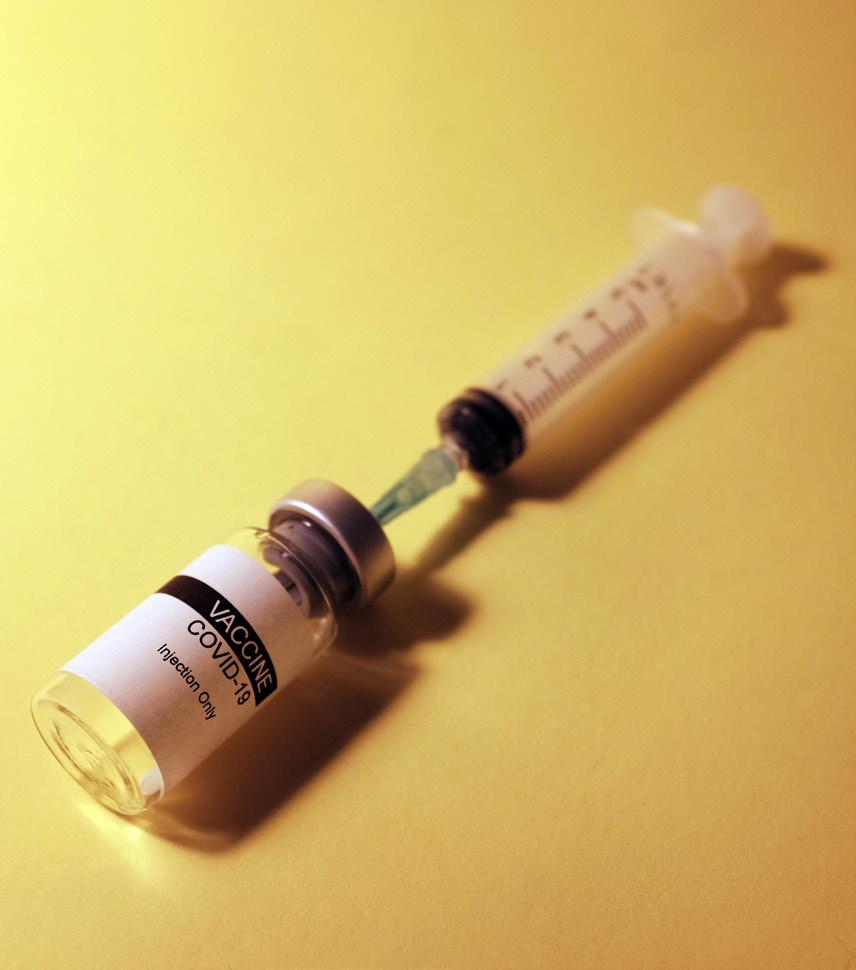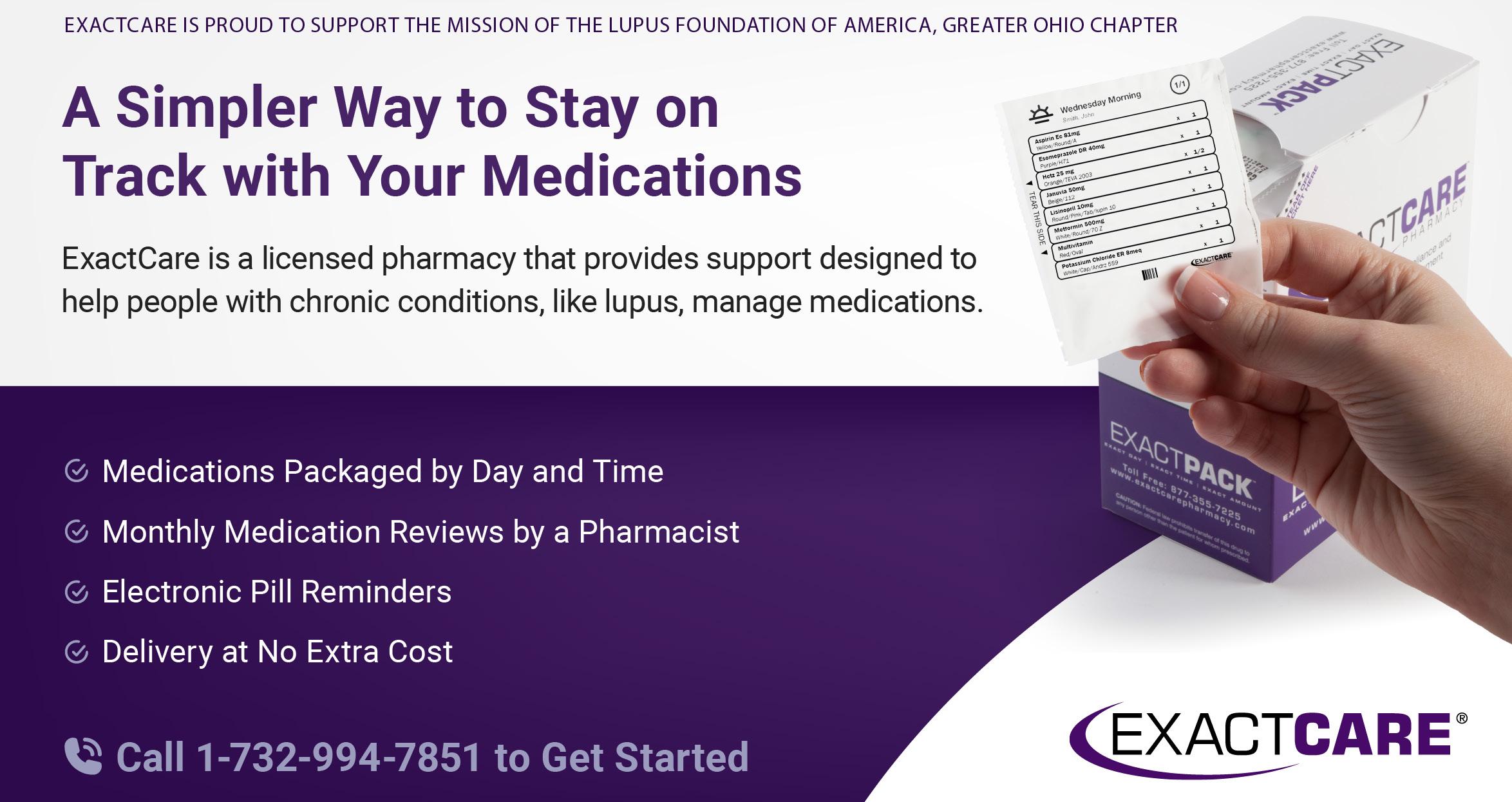
4 minute read
26 COVID Vaccine
COVID-19 VACCINE & LUPUS
BY LUPUS FOUNDATION OF AMERICA UPDATED MARCH 8, 2021
There is still a lot that we don’t know about the vaccines that are being studied and developed to prevent COVID-19. Currently there are three vaccines made by different companies that have been approved in the U.S. We are closely monitoring the FDA’s approval process and latest research so that we can keep you informed. You and your doctor should decide together if the vaccine is right for you and, if so, which one. How do the COVID-19 vaccines work?
The Pfizer vaccine and the Moderna vaccine use a new technology that relies on messenger RNA (mRNA) from the virus to teach the body how to protect against COVID-19.
The Janssen vaccine uses a harmless virus (NOT the virus that causes COVID-19) to deliver a type of protein from SARSCoV-2 (the virus that causes COVID-19) to the immune system that teaches it to recognize and fight COVID-19. The harmless virus used for the vaccine cannot give you COVID-19. Vaccines are studied in thousands of people before they are given to the general public. It isn’t possible, however, to study each vaccine in every type of person before it is approved. The FDA, the Centers for Disease Control and Prevention (CDC), and the companies that make the vaccines will continue to study their safety and effectiveness even after they are approved. Can I get COVID-19 from the vaccine?
No. It is not possible to get COVID-19 from any of the vaccines that have been approved or are currently being reviewed by the FDA.
Does the vaccine have side effects?
Many people in the clinical trials had some short-term side effects from taking the COVID-19 vaccines. The side effects are usually not serious -- one of the most common is a sore or achy arm. Some people develop low-grade fevers or chills and feel tired. This is because the vaccine is working and causing a response from the immune system. The Pfizer vaccine is given in two doses three weeks apart and the Moderna vaccine is given in two doses one month apart. For both vaccines it is more common to have side effects from the second dose than the first. You must receive both doses to get the full benefit from the vaccine.
In most cases these side effects are not dangerous and will go away on their own within a short time. Please call your doctor if these side effects last for more than two days or if you have side effects that are more severe.


In general, lupus medications will not affect how the vaccine works. In some cases, particularly for those who take powerful immunosuppressant drugs, your doctor may have special instructions for you so that you can get the greatest possible benefit from the vaccine. Please check with your doctor about how the vaccine fits into your treatment plan. Were people with lupus or other autoimmune diseases included in the clinical trials for the COVID-19 vaccines? Are the vaccines safe and effective for people with lupus? It is unlikely that many people with lupus were included in the clinical trials for the vaccines. There is no evidence, however, that people with lupus should not receive the vaccine.
According to the CDC, there is no reason to think that taking a vaccine that uses mRNA will result in an inflammatory response (flare) for a person with lupus or other autoimmune disease.
We still don’t have much information on the Janssen viral vector vaccine and people with lupus. But there is no reason to think that it will not be safe for people with lupus to receive it. There is strong evidence from the clinical trials that taking the vaccine greatly reduces the chance that a person will get COVID-19, which can be a serious or sometimes fatal illness.
The American College of Rheumatology COVID-19 Vaccine Clinical Guidance recommends that people with autoimmune and inflammatory rheumatic disease (which includes lupus) get the vaccine unless they have an allergy to an ingredient in the vaccine. We will have more information as more research studies are conducted and analyzed over time. We recommend talking with your health care team about the vaccines and your treatment plan, since it can vary from person-to-person.
Of the current COVID-19 vaccine candidates, which one is the best option for people with lupus? According to the American College of Rheumatology patients with lupus and other autoimmune inflammatory and rheumatic disease should receive whichever vaccine is available. There is no clinical reason to prefer any of the vaccines that are currently available. If you receive a two-dose vaccine, both doses should be made by the same company. If your first dose of the vaccine is made by Pfizer, your second dose should also be made by Pfizer. If your first dose is made by Moderna, your second dose should also be made by Moderna.
If you receive the Janssen vaccine, you will not need a second dose.

Most importantly, and this cannot be stressed enough, please be sure to talk with your health care team about the vaccines and your treatment plan, since it can vary from person to person.





